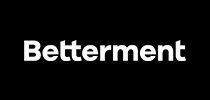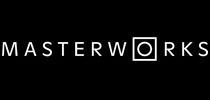Best Way To Make Money With 20k
Have $20,000? Instead of letting that money get stale by sitting around, here are 10 brilliant ways you could invest 20k - in the stock market, in a business, or in yourself.
If you have, or have recently come into, $20k to invest, good for you! It's not easy or common to save (or inherit) that kind of money in a short period of time.
You don't want the money to sit around and get stale. If you're not investing the money, you're actually losing money due to inflation.
Here are 10 ways you can invest that money, including suggested allocations and other tips.
1. Invest with a robo-advisor

- Recommended allocation: up to 100%.
Investing your $20k with a robo-advisor is a great option, as you'll immediately be invested in the stock market in a broadly diversified way.
In a nutshell, a robo-advisor is like a financial advisor, but instead of a person picking out expensive investments for you, a company like Betterment creates a series of algorithms to choose, diversify, and adjust your investments over time, all based on your financial resources, tolerance for risk, and investment timeline.
You can choose a regular, taxable investment account or set up an IRA. You may want to start by setting up and maxing out either a Roth or Traditional IRA, and then use the rest for a taxable investment account.
Currently, you can contribute up to $5,500 per year to an IRA, unless you're older and meet catch-up qualifications.
Vanguard Digital Advisor®

For investors who can meet the $3,000 investment minimum, Vanguard Digital Advisor® is a great option. You'll answer some standard questions to determine your current income situation, retirement goals, and risk tolerance, then the robo-advisor takes over and builds you a portfolio of low-cost Vanguard ETFs®.
You'll get user-friendly, visually-appealing graphics that show you exactly what you need to do to meet your savings goals. In addition, the target annual net advisor fee of about 0.15% of your Digital Advisor balance is a big selling point for investors. The cost comes out like this: you're paying just $4.50 a year per $3,000 invested – making this a super low-cost option all around.
Betterment
 If you want to invest your money with a robo-advisor, I highly suggest checking out Betterment. They have an easy-to-use platform and a very low fee structure, meant to help beginners get started investing. Plus, they have no minimum starting balance, meaning if you're not willing to invest the full $20,000, you can start with a much lower amount and scale up from there.
If you want to invest your money with a robo-advisor, I highly suggest checking out Betterment. They have an easy-to-use platform and a very low fee structure, meant to help beginners get started investing. Plus, they have no minimum starting balance, meaning if you're not willing to invest the full $20,000, you can start with a much lower amount and scale up from there.
M1 Finance
 Another one I really like is M1 Finance . Most robo-advisors won't let you select individual stocks to add to your portfolio, but with M1 you can. That means you can rely on their expertise to create the bulk of your portfolio, but you can also add in your own preferred stocks on top of that. Plus, they charge no commissions and have no minimum starting balance.
Another one I really like is M1 Finance . Most robo-advisors won't let you select individual stocks to add to your portfolio, but with M1 you can. That means you can rely on their expertise to create the bulk of your portfolio, but you can also add in your own preferred stocks on top of that. Plus, they charge no commissions and have no minimum starting balance.
Wealthfront

Wealthfront automatically invests your money into low-cost index funds, which reduces your risk while bringing maximum earnings. You'll pay only an 0.25% annual advisory fee for the service, and Wealthfront uses a strategy called Tax-Loss Harvesting to lower your tax burden.
Once you're set up, you'll also get the benefit of Wealthfront's insights, which shows you how much you can expect to make in the years to come. You also have the flexibility to edit your portfolio with ETFs of your choosing. Or, you can invest by industry, such as healthcare, tech, or socially responsible companies.
2. Invest with a broker
While many folks prefer hands-off investing with robo-advisors, there are plenty who like to invest on their own. Brokers can help you do that. Before online brokerages came onto the scene, folks used to pay hefty fees to a broker who would make trades on their behalf.That's quickly becoming a thing of the past.
For a fraction of the cost of traditional brokers, online brokers can help you educate yourself about the stock market and invest your money quickly and easily.
Robinhood
 Robinhood offers free trades and an easy-to-use app for making them. All you need to do is type in the ticker symbol of the stock you want to buy and you're just a few taps away from owning it. You can also find a huge array of ETFs on Robinhood. And with a $20,000 investment, you'd be able to build a well-diversified portfolio incredibly fast.
Robinhood offers free trades and an easy-to-use app for making them. All you need to do is type in the ticker symbol of the stock you want to buy and you're just a few taps away from owning it. You can also find a huge array of ETFs on Robinhood. And with a $20,000 investment, you'd be able to build a well-diversified portfolio incredibly fast.
Advertiser Disclosure – This advertisement contains information and materials provided by Robinhood Financial LLC and its affiliates ("Robinhood") and MoneyUnder30, a third party not affiliated with Robinhood. All investments involve risk and the past performance of a security, or financial product does not guarantee future results or returns. Securities offered through Robinhood Financial LLC and Robinhood Securities LLC, which are members of FINRA and SIPC. MoneyUnder30 is not a member of FINRA or SIPC."
E*TRADE

E*TRADE, one option for an online brokerage, now offers trades for free. That's right, what used to cost $6.95 now costs nothing – you can buy online US-listed stocks, options, and, ETFs for a $0 commission .But it's not just the low-cost trading that won me over. E*TRADE offers many educational resources that actually explain complicated investing well.
J.P. Morgan Self-Directed Investing

When looking to manage your own investments, you'll be hard-pressed to find a better user experience than J.P. Morgan Self-Directed Investing. On top of that, you'll pay no commissions, no annual fees, and there's no minimum investment required!
You can choose to build your portfolios with stocks, ETFs, mutual funds, options, and fixed income, so you'll have plenty of choices. If you're not sure where to start, you can browse through articles and insight offered by J.P. Morgan specialists that can help you get your investing legs.
Disclosure – INVESTMENT PRODUCTS: NOT A DEPOSIT • NOT FDIC INSURED • NO BANK GUARANTEE • MAY LOSE VALUE
Public

Public is one of the most Millennial-friendly stock investing apps out there right now. They bring a social aspect to investing, allowing users to converse with other investors and get a sense of what's happening in the world of stocks.
Plus, Public offers fractional shares of thousands of stocks and ETFs, all with no commission fees or minimums required. Public will also help you discover which investments align with your personal goals, offering "safety labels" that provide information about risky stocks.
3. Do a 401(k) swap

- Recommended allocation: up to 100%.
If you're employed and have $20,000 to invest, one option is to effectively "swap" the money into your 401(k).
Since that money typically comes from your paycheck or bonus, you can increase the contribution amount significantly (usually up to 75% of your salary) until you have contributed $20,000 – using the cash you have on hand to replace the lost income.
How a 401(k) swap works
Say you make $40,000 per year and you're putting 5% into your 401(k) right now. Not including any employer match, that's about $2,000 per year. Now let's say you come into $20,000 that you want to invest.
You could stash that $20,000 in a liquid, high-yield savings account and then increase your 401(k) contribution, so it wouldn't feel like you were living off of any less. (Though I'd still challenge you to do so!)
So instead of a 5% contribution, change it to 50% – yes 50% . After a year, you'll not only have invested $20,000 in a 401(k), but there's another huge benefit: you've just reduced your taxable income by 50%. A 401(k) is pre-tax money, so anything that you get in your paycheck after your 401(k) contributions is considered your taxable income.
This means that, in the government's eyes, you've only made $20,000 in one year, not $40,000. You'll pay fewer taxes in most cases, so it's a win-win.

If don't have a 401(k) and you want to start saving for your future, I'm gonna recommend blooom, a robo-advisor that specializes in managing your 401(k). Choose a risk tolerance, andblooom will make recommendations for you based on your age, income, and other factors.
Get started with blooomand get $15 off your first year of blooom with code BLMSMART.
4. Invest in real estate
Sure, you could take the chance of buying a rental property and becoming a landlord. But even if it works out, it's a complete time-suck. Plus, you're missing out on the potential rewards from investing in large-scale commercial projects.

Until recently, you had to be an accredited investor to invest in these types of projects (or have a ton of money to put in). But now there's a real estate crowdfunding investment site called Fundrise that creates loans for people or groups who are buying commercial real estate.
Think BIG projects, like apartment buildings and office buildings. They then bundle these loans together and make it an investment, called an eREIT. They then sell shares of the eREIT to you as an investor, directly through their site.
In other words, they make it incredibly simple for you to invest in big real estate projects. What's even better is that you can start investing with as little as $500. Now those of you that have read my thoughts on investing over the years know I hate correlating past performance to future returns, but it's worth noting thatFundrise has historical annual returns between 8.7% and 12.4%.
That's hard to ignore.
Plus, with such a low barrier to entry, Fundrise makes it easy for you to start investing in real estate without sinking all of your money into property or expensive REITs. I think this is a great way to dip your toe in the real estate waters.
If you are an accredited investor, try RealtyMogul
 If you have either the income or the assets to become an accredited investor, RealtyMogul is an excellent option to look into. It's similar to Fundrise, only their core offerings are designated for those with significant assets ($1 million or more) or a consistent annual income over $200,000.
If you have either the income or the assets to become an accredited investor, RealtyMogul is an excellent option to look into. It's similar to Fundrise, only their core offerings are designated for those with significant assets ($1 million or more) or a consistent annual income over $200,000.
They do offer a non-accredited path, but you're probably better off looking at Fundrise if you're at that point since the offerings are better for non-accredited investors.
5. Build a well-rounded portfolio

Real estate isn't the only property investment that can pay off down the road. There are certain products that go up in value over time. If you know what you're doing, you stand to make serious money by buying the item, holding onto it, and selling it at a higher value later.
Art collectors, for example, are well aware that certain pieces will gain value. But to succeed in this type of investment, you need to familiarize yourself with the art world.

Masterworks is a platform that helps you invest in art that will increase in value, otherwise known as blue-chip artwork. The app works by studying how artwork has appreciated over time, applying the information to art that's for sale today. This lets you buy shares of artwork, rather than having to pay the full amount to own the painting. It's a great way to diversify your portfolio.
6. Put the money in a savings account
- Recommended allocation: up to 50%.
The reason Money Under 30 recommends only putting up to 50% of your money in a high-yield savings account is because the return on investment won't be great. If you absolutely know you'll need the money in a very short period of time, you should feel comfortable going over that 50% mark, but I would think about it first.
Some high-yield savings accounts will give you a 1% annual percentage yield (or higher), which is awesome… for a savings account. You're better off, however, putting your money in the stock market, taking on a little more risk for a higher potential reward.
The other thing to consider is that you can invest your money with a robo-advisor in a super-conservative way. This is by no means going to give me the 6%+ return I'm expecting from my stocks, but I'm hoping it'll do better than a typical savings account, while also keeping my money liquid, meaning I can take it out of the account whenever I need.
7. Try out peer-to-peer lending

- Recommended allocation: less than 10%.
Peer-to-peer lending is a way of loaning money to someone else who needs it. This could be for anything: a business idea, student loans, or just paying down credit card debt.
The benefit to peer-to-peer lending (or P2P lending) is that your returns can be much higher than if you were to invest in stocks or bonds. The risk, however, is much greater, as many people won't pay the loan back on time or won't pay it back at all.
If you're going to look into peer-to-peer lending as an option for investing part of your $20,000, be sure to do as much research as you can.
Here you can read the review of two of my favorite peer-to-peer lenders, LendingClub Bank and Prosper. Before diving into P2P lending, make sure to do your research, because the risk is considerable. Also, check out this article comparing LendingClub and Prosper to find out which is right for you. If you do want to get started, click here to invest with Lending Club and here to invest with Prosper.
8. Start your own business
- Recommended allocation: up to 100% (be aware of the extremely high level of risk).
I want to emphasize that starting a business is extremely risky. If you put 100% of your $20,000 into starting a business, there's a strong chance it'll fail and you'll lose everything.
Now that I've gotten that disclosure out of the way, starting a business can be incredibly lucrative (and fun). You just really have to know what you're doing.
This all starts with a solid business plan. If you don't have a comprehensive business plan, don't even bother thinking of starting a business.
You also have to dedicate a lot of time and energy to that business. Expect to work far more hours than you would as a regular employee.
Some of the key pieces of a business plan you'll need to think through are:
- Executive Summary –W hat is the overarching purpose of your business and what problem are you trying to solve?
- Company Description –W hat exactly does your company do?
- Market Analysis – What research have you done to prove there's a viable market for this business?
- Competitive Analysis – Who are your competitors and what are your barriers to entry?
- Description of Management and Organization – Who is going to run the company and what is the management structure?
- Breakdown of Your Products and Services – What do you sell and how will you price it?
- Marketing Plan – How will you market your products and services?
- Sales Strategy – How will you get your products and services into the market to sell?
The payoff of starting a business can be great. If you find something that there's a market for, and you know how to operate a business the right way, you could end up doing exactly what you love and making great money from it.
9. Pay for an education

- Recommended allocation: up to 100%.
My dad once told me that the only thing someone can never take away from you is your education. It has stuck with me to this day because it's true.
You can lose all of your money in the stock market. Your business can fail. But if you have a strong education and a degree, that'll never go away.
If you don't have a college degree, consider getting one in something you really enjoy, but is also marketable. If you already have a college degree, consider an even higher one, say a master's or a PhD.
If that's still not for you, there's always the option of paying for some of your child's education. If you have children and haven't started a college savings account for them, now might be the time.
A 529 savings account is an excellent choice for college savings, and there are a ton of benefits to having one. In fact, I just opened one up for my son who was born earlier this year.
While $20,000 isn't going to cover the full cost of a degree in most cases, it'll at least get you started.
Low-cost (and even free) education options
If you're not looking to invest your $20,000 in formal education, you can invest some of it (or even none of it) to upskill yourself and use the rest for something else on this list.
Udemy
Udemy is just one place to start. They're a marketplace of thousands of online courses. They almost always have a sale, and you can frequently get really good classes for under $15. You can search by topic, then by popularity to see which ones are selling. You can also preview the course syllabus before you buy it so you know exactly what to expect.
Coursera
Coursera is an excellent option if you're looking for more formal or business skills. For example, if you want to learn business operations, you can do a Coursera course. All courses are partnered with a major university or company, and they're all self-paced.
They have recommended times that you can take to finish, but you can take as little or as long as you'd like. Access to a course ranges from about $40 to $80 per month, and you keep paying the fee until you cancel or finish that course. I highly recommend Coursera.
Khan Academy
If you're looking for an excellent free option, check out Khan Academy. This company has a cool backstory – Salman Khan was a lawyer (among other things) and decided he wanted to create videos to help people learn somewhat complex topics, such as personal finance.
That eventually grew into a full-scale nonprofit organization that now partners with Bank of America. They have all kinds of topics, including topics for kids, and most of the content is step-by-step explainer videos. They also have an easy to use app.
10. Pay off debt
- Recommended allocation: up to 100%.
One of the best returns on your money is paying off high-interest debt.
Yes, believe it or not, one of the BEST investments you can make is paying off your debt, most notably your credit cards. If you don't have credit cards, pay off any other kind of debt you have.
Think about it this way. The money you'll end up saving on interest by having no debt is going to far exceed any return you'll find in the investment market today. That includes real estate, stocks, fine art, or anything else.
The math on this is simple, too. Say you have a credit card with a 15% interest rate. If you pay that loan off, you're effectively earning 15%. And that's a quick return that doesn't come with any research or speculation, as there may be with stocks or real estate.
And it might even be worse than that. Say you have a personal loan at 25% (yes, this happens). If you only pay the minimum payment on that each month, it'll end up costing you a massive amount of money. Money you could have otherwise re-invested.
If you're deep in debt and have money to invest, now is the time to cut up your credit cards, stop using them, and focus on paying your debt down. And that $20k will certainly make a dent.
Summary
Remember that diversification is key, especially with this kind of money. I'd suggest you don't put all your eggs in one basket unless you really know what you're doing.
The exception to this is investing with a robo-advisor. I would feel completely comfortable investing $20k with a robo-advisor, knowing that my money is going to be well-diversified. Just make sure you mix up the type of accounts you have (i.e. retirement vs. regular investment accounts).
Don't forget about the value of an education or the thrill of starting your own business. But be sure to know the risks involved.
Whatever you do – do something. Indecision is a losing game in the financial world.
Vanguard Disclosure - For more information about Vanguard funds and ETFs, visit vanguard.com to obtain a prospectus or, if available, a summary prospectus. Investment objectives, risks, charges, expenses, and other important information about a fund are contained in the prospectus; read and consider it carefully before investing. All investing is subject to risk, including the possible loss of the money you invest. Vanguard Digital Advisor® services are provided by Vanguard Advisers, Inc. ("VAI"), a federally registered investment advisor. VAI is a subsidiary of VGI and an affiliate of VMC. Neither VAI nor its affiliates guarantee profits or protection from losses. Vanguard Digital Advisor is an all-digital service that targets an annual net advisory fee of 0.15% across your enrolled accounts, although your actual fee will vary depending on the specific holdings in each enrolled account. To reach this target, Vanguard Digital Advisor starts with a 0.20% annual gross advisory fee to manage Vanguard Brokerage Accounts. However, we'll credit you for the revenues that The Vanguard Group, Inc. ("VGI"), or its affiliates receive from the securities in your managed portfolio by Digital Advisor (i.e., at least that portion of the expense ratios of the Vanguard funds held in your portfolio that VGI or its affiliates receive). Your net advisory fee can also vary by enrolled account type. The combined annual cost of Vanguard Digital Advisor's annual net advisory fee plus the expense ratios charged by the Vanguard funds in your managed portfolio will be 0.20% for Vanguard Brokerage Accounts. For more information, please review Form CRS and the Vanguard Digital Advisor brochure. Vanguard Marketing Corporation, Distributor of the Vanguard Funds.
Read more:
- How To Invest
- Asset Allocation For Young Investors
Recommended Investing Partners
Related Tools
Best Way To Make Money With 20k
Source: https://www.moneyunder30.com/how-to-invest-20k
Posted by: bandyberful.blogspot.com

0 Response to "Best Way To Make Money With 20k"
Post a Comment